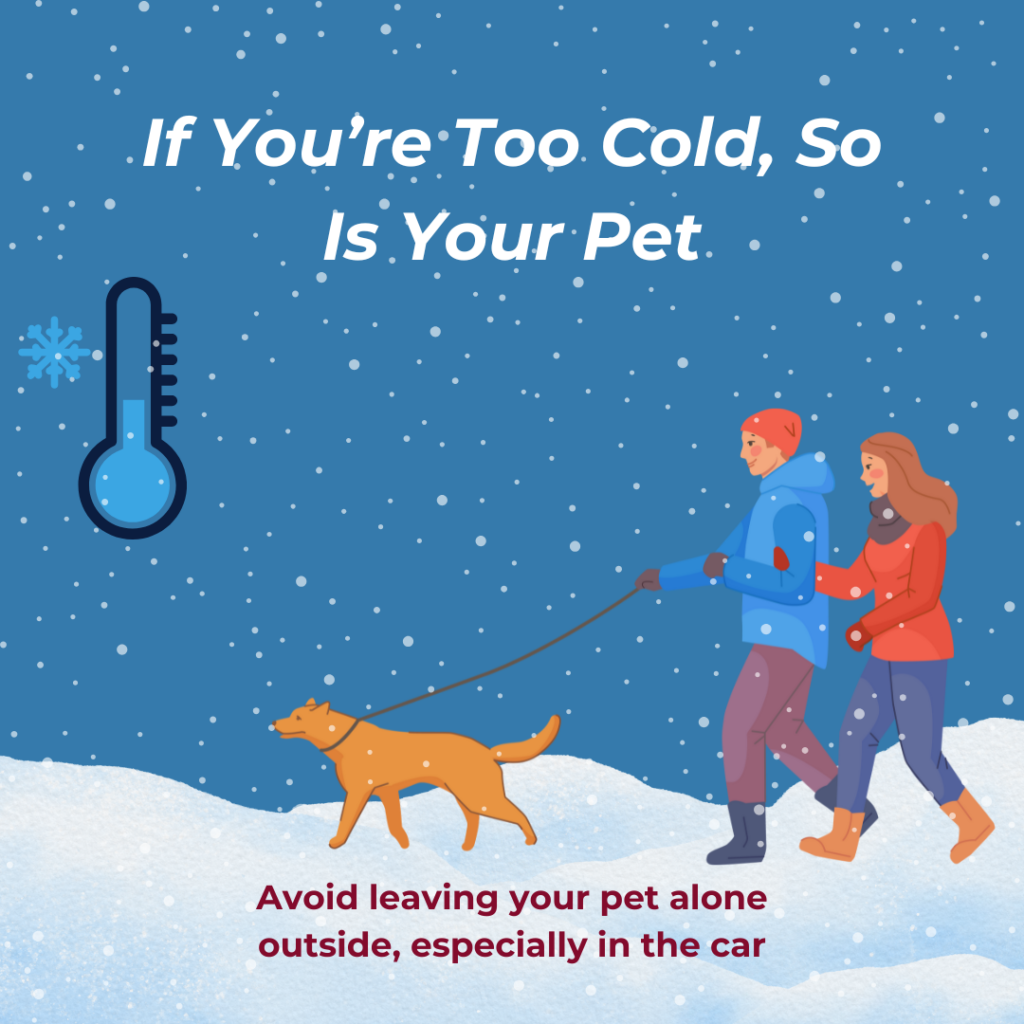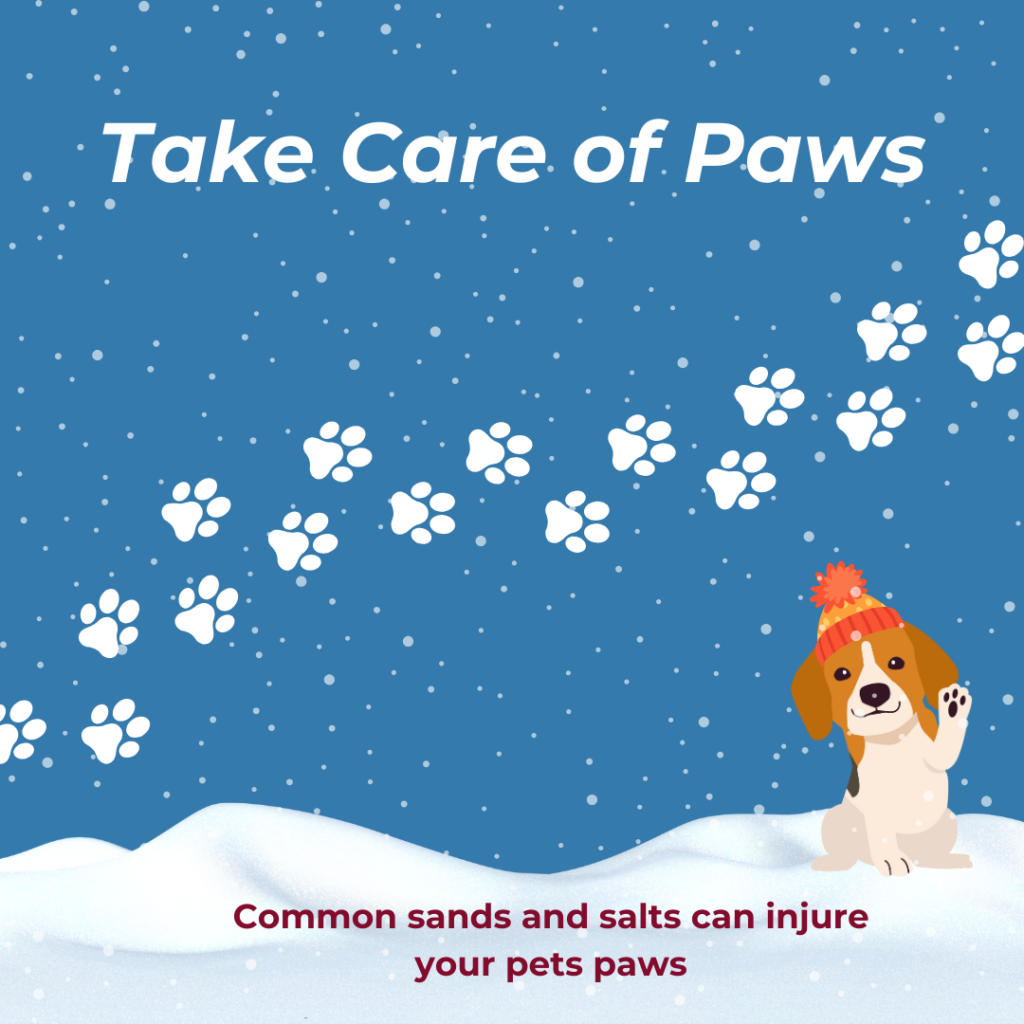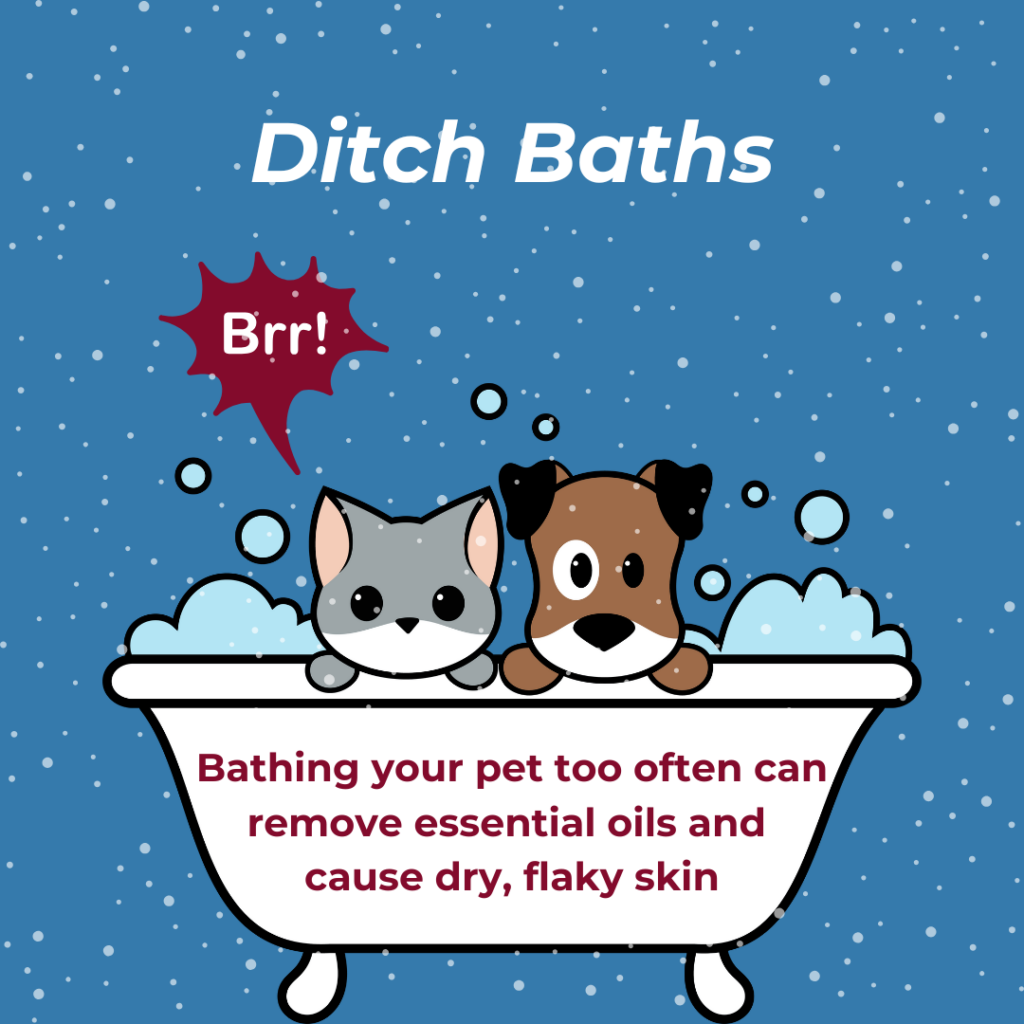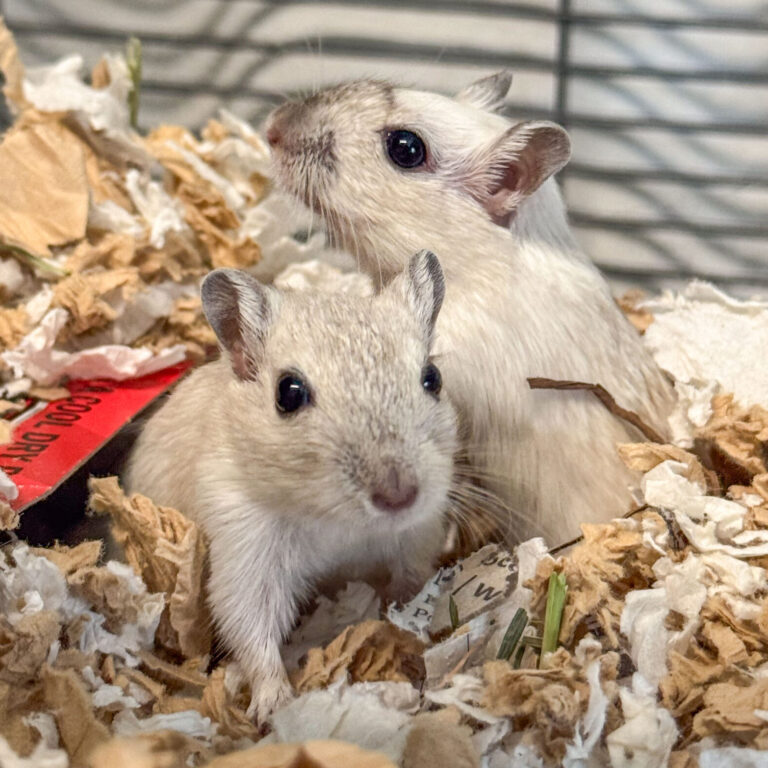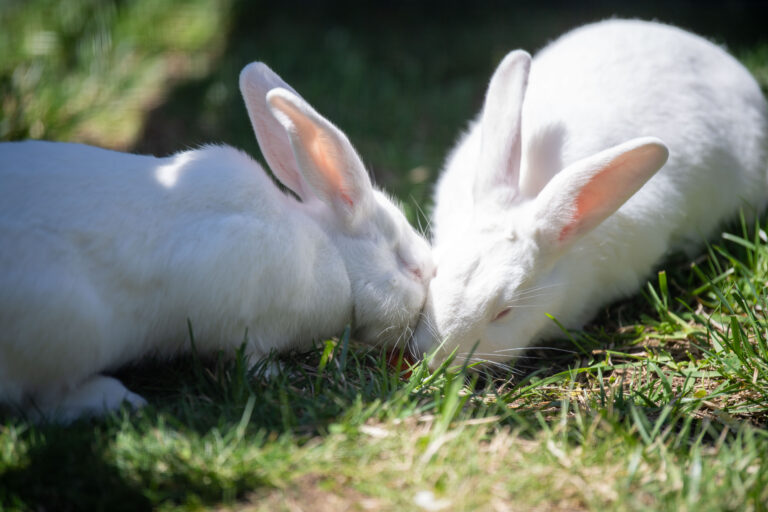Keeping Your Pets Safe in Cold Temps
There may not be much snow on the ground currently, but the extremely cold temperatures can still have an impact on your pets! Exposure to these extreme temperatures, dry air, sleet, snow and much more can all have negative effects for animals. Keep your pets cozy, warm and safe this winter with some of these tips.
If You’re Too Cold, So Is Your Pet
Avoid leaving your pets alone outside in temperatures you find too cold, because they will feel it too! These freezing temps can leave them disoriented as well as have negative health effects. Don’t leave your pet in the car by themselves, as the cold temps can be contained in the car and cause them to freeze even quicker.
Take Care of Paws
Common sands and salts used on the roads can cause irritation and injury to your animals paws. Using petroleum jelly or other vet-approved paw protectants can offer additional protection to keep your pet safe. Booties can also give additional prevention, and be sure to use pet-friendly ice melts around your home!
Ditch Baths During Cold Months
Bathing your pet too often cause problems for your pets during the winter months. Washing can remove essential oils and cause an increase in dry, flaky skin developing on your pet. For pets that need to be bathed often, ask your vet to recommend a moisturizing shampoo and/or rinse to use for these cold and dry months!
Keep Your Dog on Leash
During these cold winter months, it’s important to make sure your dog is on leash. Especially during a snowstorm, dogs can lose their scent and become lost. More dogs are lost during the winter than any other season, so be sure to always make sure your dog wears a an ID tag. If you see a dog in the cold without proper shelter, be sure to contact local law enforcement. Dogs left in extreme temperatures are at risk of hypothermia and frostbite.
Avoid Shaving Your Pet
Having a longer coat during the colder months allows your pet to have more protection against hypothermia and frostbite. Shaving your pet means they are more prone to these and will likely be colder during walks or time spent outside. If you have a longer haired pet, instead trim them frequently to minimize clinging or clumping. If your pet is short-haired, a coat or a jacket can offer them protection against the freezing temps.
A Warm and Cozy Space
Giving your pet a warm and cozy space to sleep is important with extreme cold temperatures. Keeping them off the cold floor and away from the drafts gives them a spot to stay safe and warm. For pets with shorter hair, a nice warm spot can help them avoid being cold in the house.


